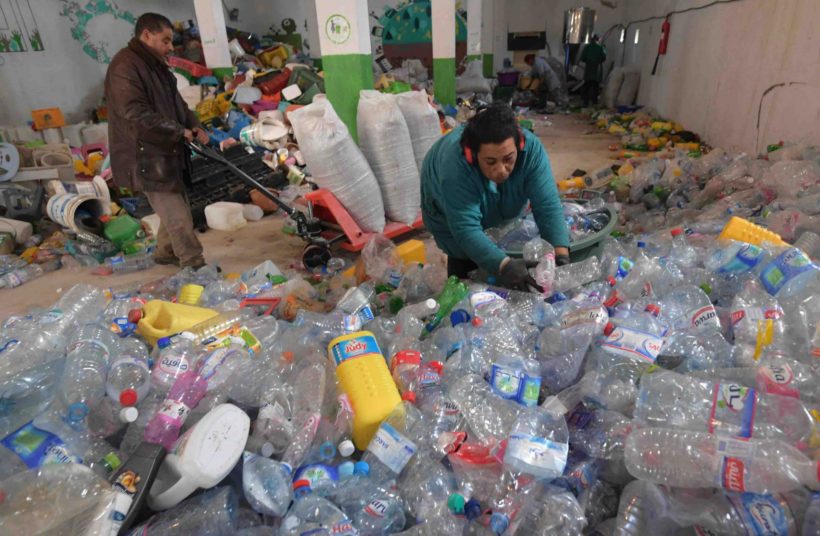“Barbechas” of Tunisia are some of the most underrated workers in the country. Though their work is difficult and precarious, it is important as it helps protect the environment from plastic waste.
The term “barbechas” refers to people in Tunisia who earn a living through collecting plastic waste, cartons and anything that can be recycled from the streets and waste bins and selling them to the recycling factories. Their work is generally underrated and under-appreciated by some people. One would find them all around the city walking with their children next to them, holding wheelbarrows to put the bottles in and going from a waste bin to another looking for any type of plastic waste to collect.
They would start working early in the morning until late at night. Since their job consists in collecting plastic bottles or anything made of plastic that has been disposed of in wastebins, they have to act fast before the Municipality collects the bins and disposes of them. It is a day-to-day job that requires working full time 7 days a week.
The work is also dangerous in the sense that they have to go through wastebins and check what people have thrown away. Some of the dangers they face include diseases, shattered glasses, used needles, and other sharp objects that people disposed of. The dangers are worse than the difficulties as “barbechas” do not have access to health insurance. They have to work under all circumstances in order to be able to provide enough money to feed their families each day.
In spite of all these factors, one needs to recognise how important their work is and how beneficial it is for the environment.
Plastic pollution is one of the most prominent types of pollution in Tunisia. Several products are placed in plastic containments, and are disposed of in public wastebins. This rendered the work of “barbechas” essential and needed especially since the public bins do not include any type of separation between recyclables and non-recyclables. Added to that, beaches and seas in coastal areas are filled with plastic water bottles that are thrown away by campers who spend hours on beaches.
Therefore, the work of “barbechas” helps reduce the rates of plastic pollution and contributes in cleaning the seas and beaches from plastic waste.
Common people appreciate their effort and have been trying to help. They would gather their plastic waste, and leave it either next to public bins or give it directly to the “barbechas” when they walk by their neighbourhoods.






